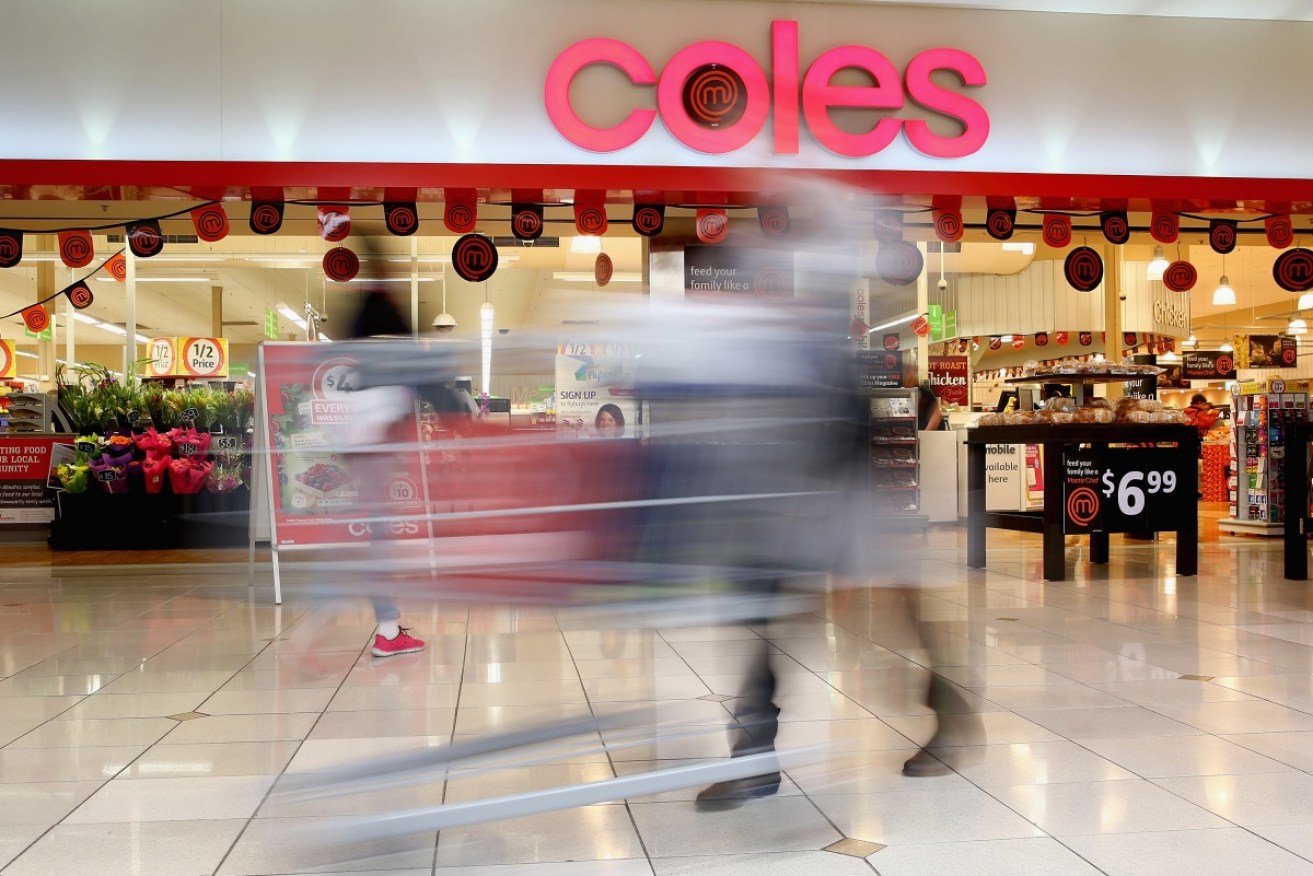Coles’ new ploy may be to clamp down on self-service checkout theft


Coles has employed a 'tactically clever' move. Photo: Getty Photo: Getty
A new ploy by one of the big two supermarket chains to limit customers to 12 items at self-service checkouts could mean retailers have decided “enough is enough”.
On Thursday, Coles revealed customers with more than 12 items would have to use traditional lanes at some stores.
It follows the company’s crackdown on supermarket shoplifting in October last year that included having plain-clothed police at checkouts.
“Coles is trialling a 12-item limit on self-scanning checkouts in a small number of stores as part of our ongoing commitment to improve customer service,” a spokeswoman said on Thursday.
The company said shoppers with more than a dozen items would be directed to manned checkouts.
The supermarket would not be drawn on whether theft from DIY checkouts influenced the move.
DIY checkout theft
Retail expert Steve Kulmar told The New Daily it was likely customers stealing from the newer checkouts was a factor.
“Theft has been higher with self-checkouts,” he said.
“You’d have to assume that it has something to do with either theft or [the number of items in] average baskets,” he said.
Last year, the supermarket chain said it had caught 22,000 shoplifters in 12 months, with half that number busted using dodgy self-checkout methods.

Self-service checkouts have been linked to theft since increasing in popularity. Photo: AAP
The revelation came after an Australian National University review of global surveys on the issue found nearly a third of shoppers regularly steal from self-service checkouts.
The review’s author, criminologist Dr Emmeline Taylor, told The New Daily it was hard to quantify exactly how much revenue was being lost at DIY checkouts.
“However, there is a lot of attention on self-checkouts at the moment and the supermarkets have decided enough is enough,” she said.
Police were “also beginning to take note due to the sheer volume of thefts”, Dr Taylor added.
“Each occurrence might be relatively small, say a few dollars, and so customers may see it as relatively trivial, but the frequency with which it occurs means that the cost to the supermarkets’ bottom line is substantial,” she said.
The National Retail Association told The New Daily last year that theft cost the industry $4.5 billion per year, or two per cent of turnover.
Dr Taylor said the big supermarkets had initially brought in the new checkouts as “free flowing and fluid self-scan areas with little security oversight”.

Traditional checkouts may soon be a thing of the past. Photo: Getty
“As the machines were mainstreamed, stealing when using them became somewhat normalised, often seen as a bit of a game – cheating, not stealing,” she said.
Why do they do it?
Dr Taylor coined the term SWIPERS to describe “seemingly well-intentioned patrons engaging in routine shoplifting”.
Because there was no face-to-face interaction with a shop assistant, a feeling of disassociation helped them to justify their crimes as merely “gaming the system”.
“These are usually people who wouldn’t dream of stuffing a chocolate bar in their pocket and walking out,” she said.
Her research showed customers routinely swiped more expensive items, such as cherries and avocados, as cheaper fresh produce such as carrots.
Mr Kulmar, founder of the consultancy Retail Oasis, said consumers now saw self-service checkouts in the same way they viewed ATMs and were particularly popular with younger shoppers.
He said despite concerns about the ease of theft, self-service checkouts would only become more common in supermarkets in future.
Dr Taylor said supermarkets were now building in more sophisticated crime control mechanisms and behaviour analysis to combat theft at the newer checkouts.
“The key to success will be ensuring that any interventions don’t inconvenience or deter honest shoppers, but signal to [offenders] that it’s a high-risk behaviour for relatively little reward,” she said.








